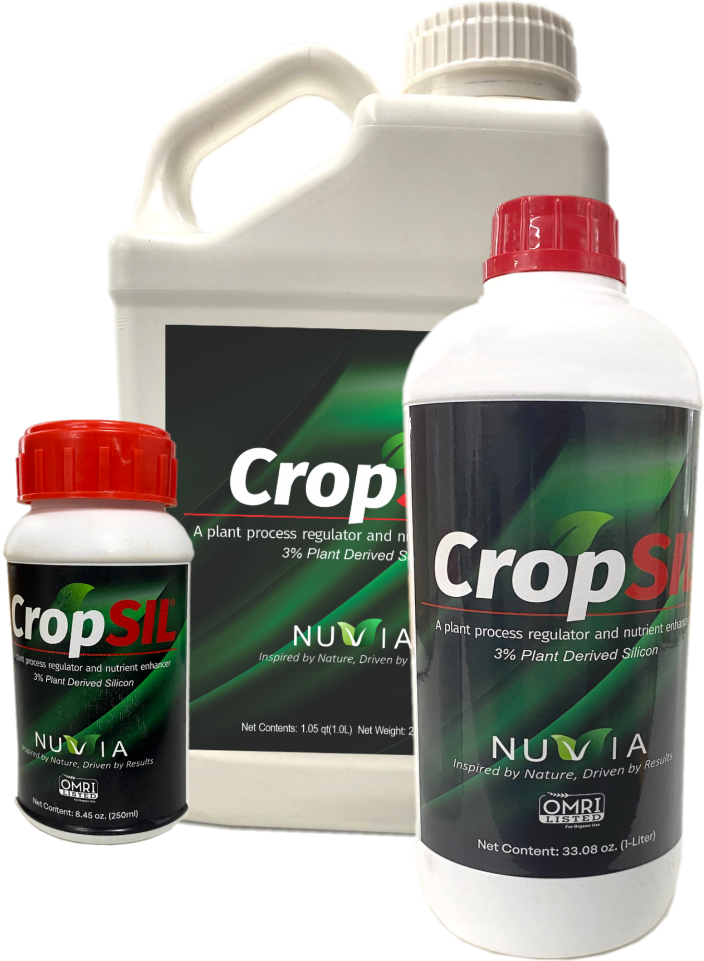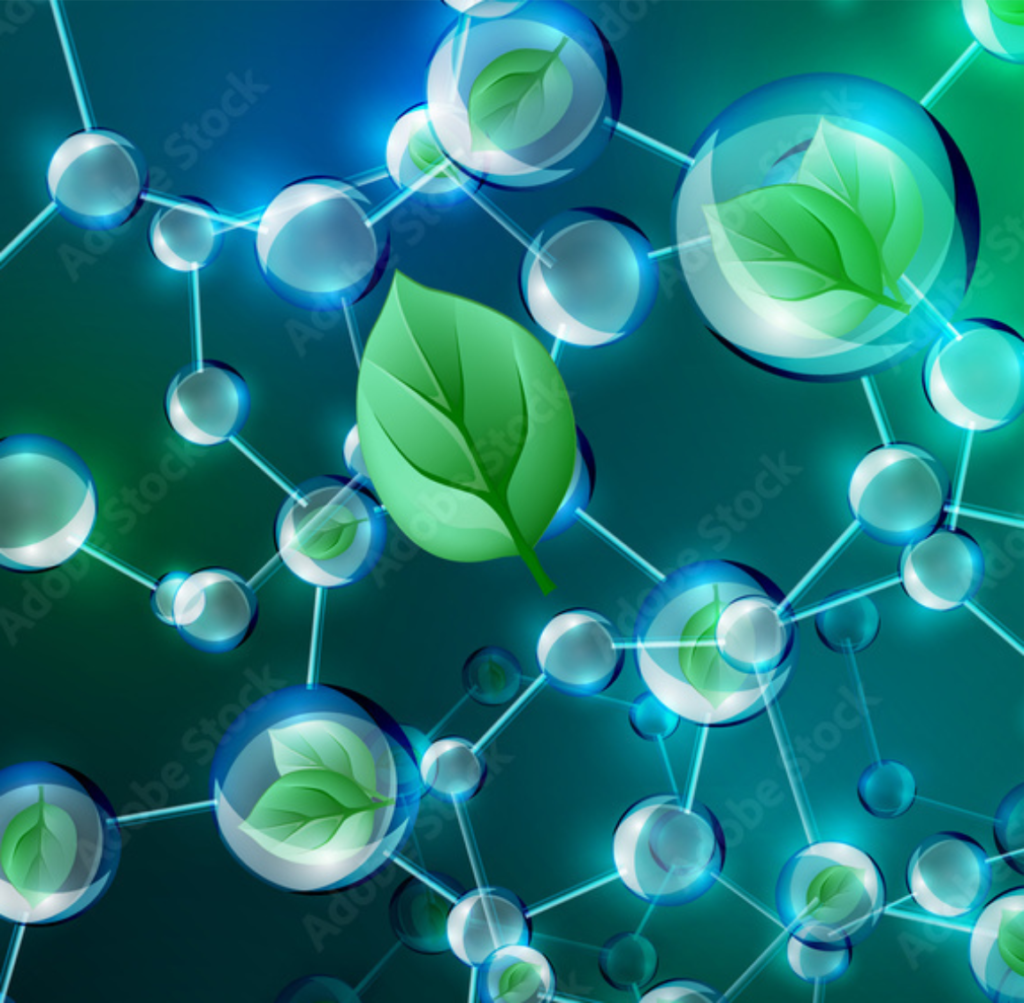
Silicon-based Plant Nutrient
Patented Formulation of Monosilicic Acid Si(OH4)
THE Little Nutrient That Is Making A BIG Difference
CropSil® is a silicon-based plant nutrient in a Monosilicic Acid form that acts as a bioregulator in the dynamics of plant cell growth, metabolism, and enzyme production. Extensive scientific research and field trials have proven Monosilicic Acid strengthens plants cell walls, increases vigor and improves resistance to stress, resulting in better rooting and crop quality. It interacts positively with other nutrients like macro and micro-nutrients and trace elements enhancing their agronomic performance and efficiency. It also enhances plant processes such as hydration and chlorophyl production.
CropSil as a plant process enhancer gives your plant more of what it’s looking for!
CropSil® works as a transport agent bringing nutrients from the root zone to the rest of the plant.
CropSil® also increases uptake of available CO2 and H2O enhancing the metabolism of plant nutrients.
• Optimizes input performance such as fertilizers and biostimulants
• Increases bio-mass of plant’s branch, stem and roots
• Improved ripening, higher brix and nutritional value with a longer shelf-life
• 100% biologically available and highly beneficial to all plants
• Easy to use as a foliar spray or irrigation additive
• Can be mixed with chemical, biostimulants, fertilizers and micro-nutrients
• Suitable for seedlings with starter, sapling transplanting treatments
Stronger Plants
CropSil® will strengthen the plant’s cell walls.
Better Hydration
Improved root system leads to better water management.
More Sunlight
Increases concentration of chlorophyll in leaf tissue.

Super Charge Your Spray Medium with CropSil as a Tank Mix Additive
CropSil® is stabilized silicic acid used to supercharge your spray medium. By adding a small amount of CropSil® to your water, you can improve the performance of watering and foliar spraying your crops. CropSil® also optimizes all other inputs in a tank mix allowing for a reduction in the usage of chemical inputs. With a super charged solution, plants build stronger cell walls, larger more erect leaves with increased chlorophyll production and increased root mass that will optimize the improved uptake of nutrients, leading to more natural vigor and an increased resistance to stress. Therefore, the need for copious amounts of fertility and protective chemical inputs that also damage and toxify our soils is greatly reduced. Thus, enabling plants and crops to grow in a more natural way to produce healthier, productive and sustainable outcomes.

Understanding the importance of the Silicon Nutrient (Si)
Bio-available mono-silicic acid Si(OH)4 the only form of silicon (Si) utilized by plants
Silicon is the second most abundant element on earth and can be found in all soil. The belief is that plants are unable to use silicon in its most common form and are still able to grow to maturity without the use of silicon (Si). Silicon is not considered to be essential to a plant’s growth and is not recognized as a primary nutrient for plants like NPK. However, the truth is that silicon does play very important roles in the growth cycle of all plants (vigor, production, stress resistance, etc.) as is being researched and discovered by academia. Studies have shown that silicon has a positive influence on uptake and vascular transport of micro-nutrients as well as improving the mechanical strength (structure) of the plant. Helping plants to resist stress and improve growth. Natural weathering process turns a very small portion of silicon into plant available silicon (PAS), known as Monosilicic Acid (MSA) or Orthosilicic Acid (OSA) the only form of silicon utilized by plants. However, silicic acid is very unstable and in a soil environment rapidly binds to itself (polymerizes), quickly becoming once again unavailable to plants and leading to silicon deficiency and plant stress. What research has shown is when stablized into a mono-silicic acid form and introduced to plants it can have very profound affects on many plant processes. In particular cell growth, nutrient transportation, hydration and chlorophyl production.
CropSIL SPECIMEN
Download PDF
EDAGUM SPECIMEN
Download PDF
Provia AP21 Specimen
Download PDF
GENUS MC8 SPECIMEN
Download PDF


